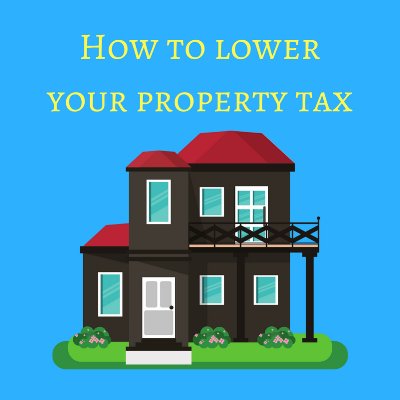Looking for ways to reduce your property taxes? Look no further! In this article, we will provide you with practical solutions on how to reduce your property taxes and keep more money in your pocket. Property taxes can be a significant expense for homeowners, but with the right strategies and knowledge, you can lower your tax bill and save yourself some hard-earned cash. So, let’s dive into the various methods and insights that will help you navigate the complex world of property taxes and find ways to minimize your financial burden.
How to Reduce Your Property Taxes
Introduction
Owning property comes with many financial responsibilities, one of which is paying property taxes. These taxes can be a significant burden on homeowners, often increasing over time. However, there are several strategies you can employ to reduce your property taxes legally. In this article, we will explore various methods and considerations to help you lower your property tax bill. By following these guidelines, you can potentially save a significant amount of money over the long term.
1. Understand How Property Taxes are Assessed
Before diving into tax reduction strategies, it’s crucial to have a clear understanding of how property taxes are assessed. Typically, assessors determine the value of your property based on its fair market value, which is the price a willing buyer would pay to a willing seller in an open market. They also consider factors such as location, land size, property size, improvements, and comparable properties in the area.
2. Research Exemptions and Property Tax Relief Programs
Many jurisdictions offer exemptions and property tax relief programs to certain individuals or properties. These exemptions and programs can significantly reduce your property tax burden. Here are some common examples:
- Homestead Exemption: In some states, homeowners who use their property as their primary residence may qualify for a homestead exemption. This exemption reduces the assessed value of the property, resulting in lower property taxes.
- Senior Citizen Exemption: Some jurisdictions provide property tax relief for senior citizens. Eligibility criteria vary, but it’s worth researching whether you qualify for such exemptions if you are a senior homeowner.
- Disability Exemption: Individuals with disabilities may also be eligible for property tax exemptions. These exemptions aim to ease the financial burden on disabled homeowners.
- Green Energy Initiatives: Some areas offer tax incentives for homeowners who install energy-efficient or renewable energy systems on their properties. These initiatives not only help the environment but can also reduce your property taxes.
To explore these exemptions and relief programs, contact your local tax assessor’s office or visit their website for detailed information on qualifying criteria, deadlines, and application procedures.
3. Check for Property Tax Errors
Tax assessment errors are not uncommon, and they can result in higher property tax bills than you deserve. It’s essential to review your property tax assessment for any inaccuracies. Here’s what you can do:
- Verify Property Details: Check if the assessor has accurate information about your property’s size, number of rooms, amenities, and any recent changes or renovations.
- Examine Comparable Property Assessments: Research and compare the property assessments of similar properties in your area. If you notice significant discrepancies, you may have grounds to appeal your assessment.
- Consult a Property Tax Professional: If you suspect errors or need assistance with the assessment process, consider consulting a property tax professional. They can review your assessment, identify any discrepancies, and guide you through the appeal process if necessary.
By identifying and rectifying any errors, you can potentially lower your property tax bill and ensure you are paying a fair assessment.
4. Consider Appealing Your Property Tax Assessment
If you believe your property tax assessment is unfair or inaccurate, you have the right to appeal it. The appeals process varies by jurisdiction, but generally involves the following steps:
- Research Your Local Appeals Process: Understand the specific rules and deadlines for property tax assessment appeals in your area. Contact your local tax assessor’s office or visit their website for guidance.
- Gather Supporting Evidence: Collect relevant documentation that supports your claim. This may include recent home appraisals, photographs of property defects, or information on comparable properties with lower assessments.
- Prepare an Appeal: Follow the required format and guidelines to draft your appeal. Be clear, concise, and provide supporting evidence to strengthen your case.
- Submit Your Appeal: File your appeal within the specified timeframe and according to the instructions provided by the tax assessor’s office. Keep copies of all submitted documents for your records.
- Attend the Hearing: If your appeal progresses to a hearing, be prepared to present your case in front of an appeals board or hearing officer. Clearly articulate your arguments and provide evidence to support your claim.
- Review the Decision: After the hearing, you will receive a decision regarding your appeal. If successful, your property tax assessment will be adjusted accordingly.
While the appeals process might require time and effort, it can be worthwhile if you believe your property tax assessment is unjust.
5. Monitor Your Property’s Value
Property values can fluctuate over time, affecting your property tax assessment. By monitoring and understanding the market value of your property, you can ensure that your assessment remains fair. Here are some actions you can take:
- Track Real Estate Market Trends: Stay informed about the local real estate market and how property values are changing in your area. Understanding market trends can help you anticipate potential increases or decreases in your property tax assessment.
- Regularly Assess Your Property’s Value: Periodically evaluate your property’s value using various sources. Keep track of recent sales of comparable properties and consider obtaining a professional appraisal to estimate your property’s value accurately.
- Challenge Unjust Assessments: If you notice a significant increase in your property tax assessment that does not align with market trends, consider appealing the assessment or consulting a property tax professional for guidance.
By actively monitoring your property’s value, you can ensure that your tax assessment accurately reflects market conditions.
6. Explore Tax Payment Options
While the goal is to reduce your property taxes, exploring various payment options can help ease the financial burden. Here are some options to consider:
- Splitting Payments: Some jurisdictions offer the option to split property tax payments into multiple installments. This can help manage cash flow by breaking down the payment into smaller, more manageable amounts.
- Tax Deferral Programs: Certain areas offer tax deferral programs for eligible homeowners, especially senior citizens or those with limited financial resources. These programs allow you to delay paying property taxes until a later date, often with interest.
- Escrow Accounts: If you have a mortgage on your property, consider setting up an escrow account with your lender. This account earmarks a portion of your mortgage payment to cover property taxes, ensuring you have sufficient funds available when taxes are due.
- Prepayment Discounts: In some cases, paying your property taxes in advance may qualify you for a discount. Check with your tax assessor’s office to determine if they offer any prepayment incentives.
By exploring these payment options, you can manage your property tax obligations more effectively.
7. Stay Informed and Engage in Local Tax Discussions
Tax laws and regulations can change, so it’s crucial to stay informed about local tax discussions and proposed amendments. Pay attention to community meetings, local news, and any legislative changes related to property taxes. Engaging in these discussions and understanding the potential impact on your property taxes can help you plan and adapt accordingly.
Reducing your property taxes requires proactive research, understanding of assessment processes, and knowledge of available exemptions and relief programs. By taking the necessary steps to appeal unfair assessments, monitor property values, and explore payment options, you can potentially lower your property tax burden. Remember to stay informed about local tax regulations and engage in community discussions to advocate for fair and reasonable property tax policies. With these strategies in place, you’ll be better equipped to manage your property taxes effectively and save money in the long run.
How to REDUCE Your Property Taxes! [By a CPA]
Frequently Asked Questions
Frequently Asked Questions (FAQs)
How can I reduce my property taxes?
Reducing property taxes can be achieved through various strategies and approaches. Here are some effective ways:
Are there any exemptions or deductions available to lower property taxes?
Yes, there are several exemptions and deductions that can help lower your property taxes. Examples include:
Is it possible to appeal the assessed value of my property?
Yes, you can appeal the assessed value of your property if you believe it is inaccurate or too high. This can be done through the following steps:
What are some strategies to lower property taxes for seniors?
Seniors may be eligible for specific discounts or exemptions on their property taxes. Here are some strategies to consider:
Can improving my property help reduce taxes?
Yes, certain property improvements can potentially lower your property taxes. Consider the following:
Is it worthwhile to hire a professional to help reduce property taxes?
Engaging the services of a professional, such as a tax consultant or an appraiser, can be beneficial when attempting to reduce property taxes. They can provide valuable guidance in the following areas:
What happens if I don’t pay my property taxes?
Not paying property taxes can lead to serious consequences. Here’s what you need to know:
Is there a deadline to apply for property tax reductions?
Yes, there is usually a deadline to apply for property tax reductions. The specific deadline may vary depending on your location and local regulations. Here’s what you should keep in mind:
Final Thoughts
Reducing your property taxes is an important financial goal for many homeowners. Luckily, there are several strategies you can employ to achieve this. Firstly, ensure that your property is accurately assessed by reviewing the assessment and challenging any errors. Secondly, explore potential exemptions and deductions that you may be eligible for, such as homestead exemptions or tax credits for energy-efficient upgrades. Moreover, staying informed about local tax laws and attending public hearings can enable you to voice concerns and advocate for fair assessments. Consider discussing your situation with a qualified tax professional who can provide personalized advice. By implementing these proactive measures, you can effectively reduce your property taxes.



